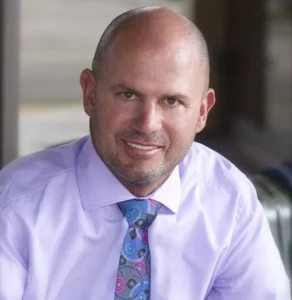
Car accidents are terrifying experiences, which is why it’s so easy to say something like, “I’m sorry” without even thinking about it. However, making any statement that implies you are taking responsibility for the accident can negatively impact your case.
If you were recently involved in a car accident and do not know your rights, reach out to an experienced lawyer with Hollander Law Firm Accident Injury Lawyers for help. We can discuss your case during a free case review.
Table of Contents
Why Does Admitting Fault Matter In A Car Accident?

Since Florida is a no-fault state for car insurance, you might wonder why admitting fault here would even matter. Unlike most states, you do not immediately file a claim with the at-fault driver’s insurer. Instead, you turn to your own personal injury protection (PIP) coverage, and the other driver files a claim with their own insurer.
However, this does not mean that fault never matters. PIP insurance only covers up to the policy limits, which are set at $10,000 in Florida. Additionally, it only covers a portion of expenses. For example, it covers 80% of medical expenses and 60% of lost wages, up to policy limits.
A person who is injured in an accident can pursue compensation against the at-fault driver for the full extent of their losses. Therefore, if you admit fault for the accident, the other driver could make a claim with your insurer or file a personal injury lawsuit against you.
Another reason why it is not a good idea to admit fault for an accident is that you may not know all of the factors that may have contributed to the accident. For example, the accident could be caused by:
- A drunk driver
- A mechanical problem
- A defective auto part
- Someone else’s negligence
By taking responsibility for the accident, you might be taking responsibility for something that wasn’t even your fault.
Examples Of Admitting Fault
An admission of fault is anything that you say that states or implies you were responsible for the accident. Some examples include saying any of the following:
- It was my fault
- I’m sorry
- My bad
- I didn’t see you
- I apologize
While it is generally best not to admit fault for the accident if you have already admitted fault, a lawyer may be able to overcome this and put the statement in a better context.
How Admitting Fault Can Be Used Against You
If you admit fault for the accident, the other driver’s insurance carrier could deny or significantly decrease the value of your claim. Additionally, the other driver may try to file a claim against you. Any damages that exceed your liability insurance policy could be your personal responsibility to cover.
Even if you later realize that you were not at fault for the accident, your statement may still be used against you. While statements you make generally cannot be used in court because they are considered hearsay. However, making a “statement against interest” is considered an exception to the hearsay rule because the statement is so contrary to your interest or could foreseeably subject you to liability that it is presumed to be true. Therefore, these statements may later be brought up in court if your case goes to trial.
Even if other evidence can overcome your admission of fault statement, the statement can still call your credibility into question, which can decrease the potential value of your claim.
Comparative Fault
Another way that admitting fault can affect your claim is because it can be used to support a finding of comparative fault. In Florida, even if you contributed to the accident, you can still bring a lawsuit against the other parties, as long as you were not more than 50% at fault for the accident. However, your damages are reduced by your degree of fault.
Suppose you were found to be 15% at fault for the accident, you would only be eligible to receive 85% of your damages. So, if you sustained $100,000 of damages, the most you would be able to recover in this example is $85,000.
Determining Fault
It is important to conduct a thorough investigation to determine how the accident happened and who is responsible for it. This process may consist of the following actions:
- Reviewing the accident report and the statements from the parties
- Looking at pictures from the accident scene
- Requesting access to traffic camera footage
- Analyzing physical evidence, such as skid marks and property damage
- Interviewing witnesses
- Consulting with accident reconstruction experts
- Extrapolating data from electronic recording devices in the vehicles
An experienced car accident lawyer can work diligently so that your admission of fault is only seen as one piece of evidence, rather than the only piece of evidence.
What To Do After An Accident
It is normal to experience shock and confusion after a car accident. However, you also do not want to do anything to jeopardize your case. Here are some steps you can take to protect your claim and your rights:
Stay At The Scene
Try to stay as close to the scene as possible without creating any additional danger. Activate your flashers or put flares or flags near the vehicles to alert other drivers and prevent secondary crashes.
Call 911
Call for emergency services to report the accident and request an ambulance in case anyone is hurt. Administer first aid until EMTs arrive at the scene.
Talk To Law Enforcement
Law enforcement may ask you questions. Here are some tips for dealing with law enforcement:
- Be honest.
- Stick to the facts.
- Do not give opinions about how you think the accident occurred.
- Do not take responsibility for the accident or admit fault.
- Ask about how to get a copy of the accident report once it is prepared.
Gather Information
Ask for the other driver’s information, including their:
- Name, address, and phone number
- Make, model, and year of the vehicle
- License plate number
- Insurance information
- Driver’s license number
If any witnesses stopped at the accident scene, ask for their contact information, too.
Be Careful What You Say
As mentioned earlier, admitting fault for the accident can cause issues with your claim, so be careful what you say at the scene of the accident to the other driver or witnesses. Additionally, avoid discussing the accident in public or online.
Contact An Experienced Lawyer For Help With Your Case
If you were recently injured in a car accident, the best way to protect your rights is to hire an experienced car accident lawyer. The legal team at Hollander Law Firm Accident Injury Lawyers wants to help you through this difficult time. Contact us today at (561) 347-7770 to review your legal rights and options during a free case review.
